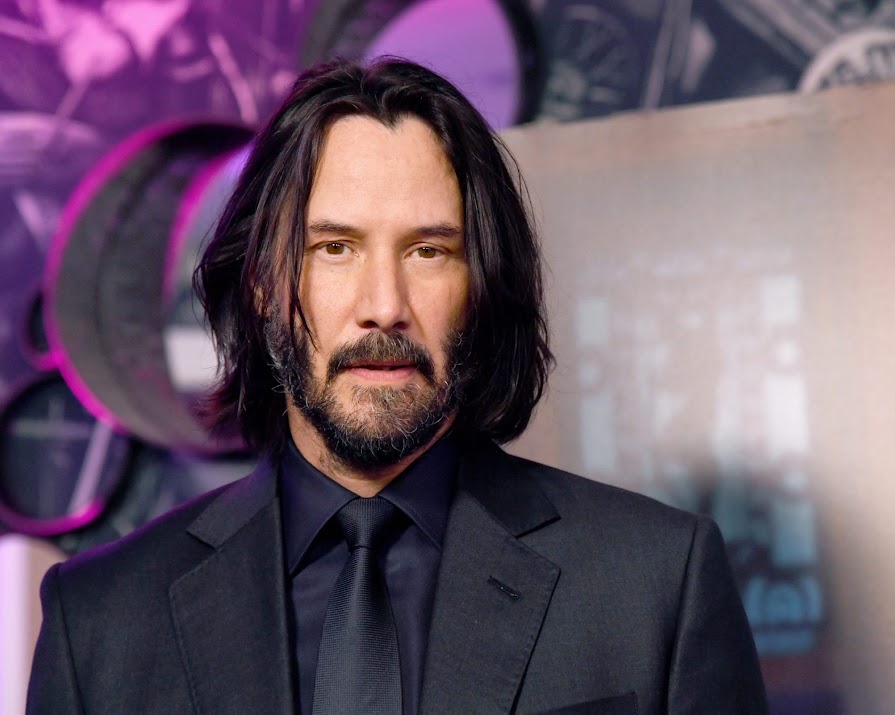
‘Those things don’t ever go away’: Why Keanu Reeves opening up about grief is important
By Jennifer McShane
20th May 2019
20th May 2019
To grieve is a deeply personal, painful process. There is no straight path when it comes to grief; it ebbs and flows as it will. Sometimes you expect it and other times it can come from anywhere, this onslaught: reading a book, hearing a song or a turn of phrase which lingers on the edge of the mind.
In the case of actor Keanu Reeves, it was a return to a familiar character that sparked a revival of the sadness and emotion experienced years ago. John Wick: Chapter 3 – Parabellum continues the story of Reeves’ character Wick, which began in 2014’s John Wick. It’s how it all starts; Reeves’ ex-hitman comes out of retirement to track down the gangsters that killed his puppy, one of the last things that connected him to his recently deceased wife.
Related: Dealing with grief: ‘One day he went to work and never came home’
But it was Reeves’ own experiences of personal tragedy that gave him a deeper insight into his infamous character – and he has opened up about this melancholy process in a new interview with The Guardian.
In 1999, Reeves’ long-term girlfriend Jennifer Syme gave birth to the couple’s daughter Ava, who was sadly stillborn. Reeves and Syme broke up soon after, and two years later Syme was tragically killed in a car accident.
“With any character,” he said, “the way I think about it is, you have the role on the page, you have the vision of the director and you have your life experience.”
“One of the foundations of the role for John Wick,” he said, was his own personal experiences.
“Grief and loss, those things don’t ever go away”
Reeves continued by saying that he found grief interesting “for the character and in life” because “it’s about the love of the person you’re grieving for, and any time you can keep company with that fire, it is warm.”
“I absolutely relate to that, and I don’t think you ever work through it. Grief and loss, those are things that don’t ever go away. They stay with you. Losing someone is always with you, but like an ebb and flow.”
SC: (jokingly) “What do you think happens when we die, Keanu Reeves?”
KR: (deep sigh, long pause) “I know the ones who love us will miss us.”
— The Late Show with Stephen Colbert #LSSC, S4 Ep145 (10 May) pic.twitter.com/gEdp74p4O1
— ?? Jeff Bonner (@VoxLuna) May 11, 2019
Related: ‘I didn’t ask for this’: Why do we feel the need to judge how others grieve?
His comments are particularly important when it comes to raising more awareness around men and mental health. As we know, multiple studies have shown that men in, particular, have difficulty opening up issues such as grieving. In fact, it has been deemed “a silent crisis.”
For men, this includes elevated rates of suicide and substance abuse, as well as low rates of use when it comes to availing of mental health services.
Research suggests that in the current economy, many men are finding it difficult to fulfil a breadwinner role, leaving them “without a powerful sense of pride, purpose and meaning in life” hence mental health issues may be prominent but not openly spoken about.
As Reeves says, there’s no one way to handle such a complex set of emotions – your process is your own – and speaking out about this is as important as seeking the help you might need. Something that was also echoed by Prince William. Speaking in a new documentary, he said, “Guys, in general, find it very difficult to talk about their feelings – doing what we’re doing here makes a huge difference.”
Prince William also opened up about his experience with bereavement, describing the loss of his mother, Princess Diana, as a “pain like no other pain.”
Main photograph: @Complex
If you have been affected by any issues mentioned in this article, you can contact The Samaritans or Aware























